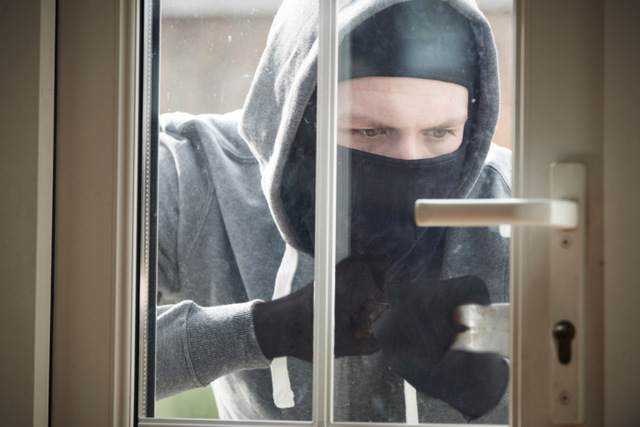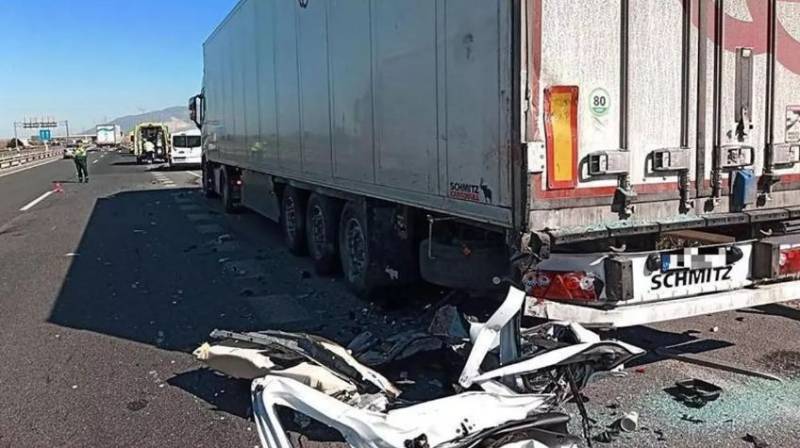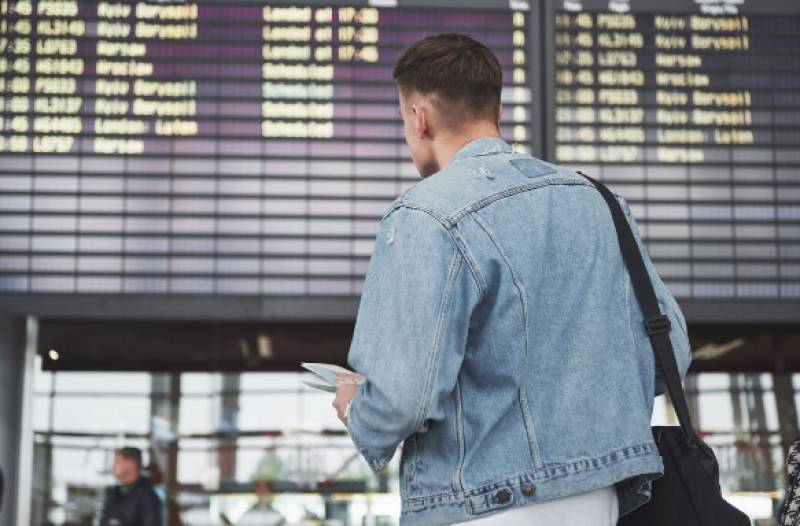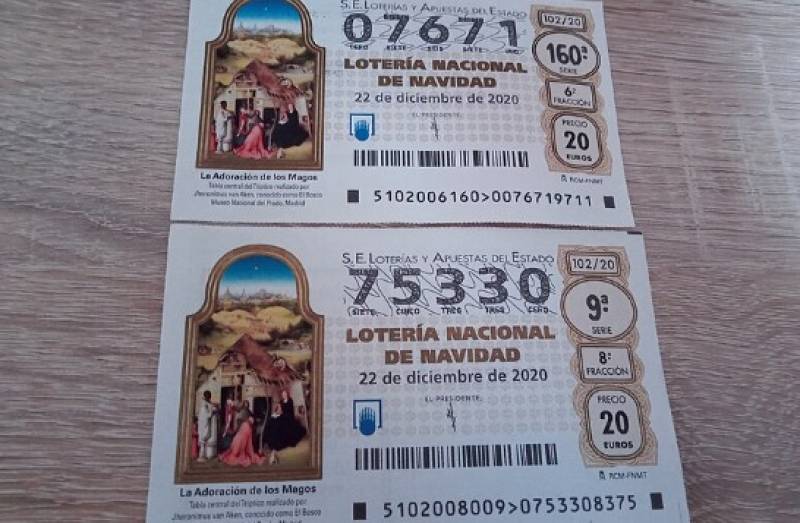
To be listed on the CAMPOSOL TODAY MAP please call +34 968 018 268.
Basic procedures if your Spanish property is burgled
Accepting the possibility of theft is the most important part of burglary prevention

Many foreign national Spanish property owners leave their homes empty for considerable periods of time, a fact which is well-known by local thieves.
It is quite normal for foreign owners to leave electrical goods and small, saleable ítems in their premises, making them a natural target, and thieves are normally fully aware of entry methods on blocks of apartments or urbanisations and generally have sufficient local knowledge to be aware of which properties are more vulnerable than others.
Crime prevention can be undertaken in many different ways, but all property owners should acknowledge the possibility that they may be targeted and undertake 2 basic activities when buying a property in Spain: Get insured and take an inventory of all ítems left in a holiday property.
It’s astonishing how many people fail to insure their Spanish property and this is an absolute basic essential as not only robberies can occur, but there is always the risk of fire, flooding or vandalism.
Take an inventory: Wherever possible, keep ALL receipts when buying furnishings or contracting tradesmen and photograph everything, as it’s amazing how much it actually costs to furnish a home. Digitalize your records so that even if you lose the hard copies, a digital record can be supplied.
Always arrange for a neighbour or property management company to check on your property in your absence so that any break-ins can be reported immediately.
However, if you’re here and your property is burgled, these are the basic steps to follow:
If you're burgled:
Being burgled can be an extremely traumatic event, particularly in a foreign country where the victim may be unfamiliar with both the language and the practicalities of dealing with the situation.
There follows a series of recommendations which are agreed upon by legal advisers, the police and the Guardia Civil, with the first item without doubt being the most important:
1. DON’T PANIC. This is the easiest piece of advice to give, but possibly the hardest to follow.
It’s vital to remain calm if you find that your home has been broken into, and if you have family living with you it’s also essential to bear in mind that you’re not the only one affected. Others may be in a far worse state than yourself, and if you can provide an appearance of reassuring calm this will help them to act rationally, as well as helping you to respond appropriately to what’s happened.
2. PHONE THE POLICE. As soon as you suspect that burglars have entered your home, contact the appropriate emergency numbers. In large towns and cities this can be 091 for the Policía Nacional and throughout Spain it’s 062 for the Guardia Civil. Alternatively, the emergency services line is 112, where the appropriate authority will be notified immediately.
3. DON’T TOUCH ANYTHING. This falls within the category of common sense, but in burglaries it’s very important not to touch anything. In fact, if there is any chance that the burglars are still inside, don’t even go in: go back to the street and make your emergency call there. The police and the Guardia Civil will come as soon as possible to check inside the property.
If you’re already inside, make a visual check for what items are missing and make a list. If you can, take photographs to show damage, and if you keep valuable items such as jewelry in your home the police recommend that you also have a stock of photographs of them so that attempts to trace them or identify recovered items are made easier.
4. MAKE A “DENUNCIA” TO THE POLICE OR THE GUARDIA CIVIL. The “Denuncia” is a report that an offence, in this case a burglary, has been committed, and it is important not only so that investigations can be made but also in making subsequent insurance claims.
The Denuncia should be made as soon as possible. The Policía Nacional have made it possible for online Denuncias to be made, and reports can also be made by phone on 902 102112. This telephone service is available in English between 9.00 and 21.00, and applies to document theft, vehicle theft, burglaries, lost documentation and damages.
It doesn’t matter if your initial Denuncia is incomplete, it can be amplified later, when you go to the police station or Guardia Civil offices to ratify it.
When you do this it’s important to take along all of the relevant documentation, including your own identity documents and any receipts or documentary proof of the value of items stolen.
5. BE PREPARED TO DEMONSTRATE OWNERSHIP OF STOLEN ITEMS. Part of the job of the police in these cases is to ensure that false insurance claims are not submitted for items which were never owned by the victims of burglaries. Don’t succumb to the temptation to invent stolen items!
This also leads on to a very important bit of advice for residents which is to keep ALL receipts for goods after purchase: it has been reported by readers that insurance claims have proven traumatic due to the need to prove ownership of, and value of, goods stolen.
6. CONTACT YOUR INSURANCE COMPANY. The police will also do this as part of their routine enquiries, but you will need to start the procedures for making a claim on your house insurance policy.
7. HOTEL BURGLARIES. Theft from a hotel room (or a hostel, rural gîte or any other residential accommodation) is treated as burglary. The only difference is that as well as the steps recommended above, you should also inform hotel staff immediately.
8. THEFTS FROM RURAL PROPERTIES. Again, thefts from rural properties should be dealt with in the same way as home burglaries, despite the fact that the items stolen may include heavy machinery, vehicles or even animals. Don’t touch anything, and follow the steps outlined above.
NB: Very often the police will recover goods which have been stolen. If you are able to provide an accurate list of your possessions and images of the stolen goods then the chances of being re-united with your property are considerably increased.
Repairs: Speak to your insurance company before embarking on any repairs or replacements and always get written quotes.Take before and after photographs.
It may sound extreme, and depends if you live in an area where English is spoken widely, but if your Spanish is rusty it is advisable to find a local translator and keep their telephone number, as well as that of the English language Crimeline number handy just in case. Put them in the phone. Write them in your diary. Stick them on the fridge with a magnet or put in a cupboard where theyre easy to find.
Click for a full list of expat fact sheets: simple tips and basic advice about living in Spain, Click Expat factsheets





























